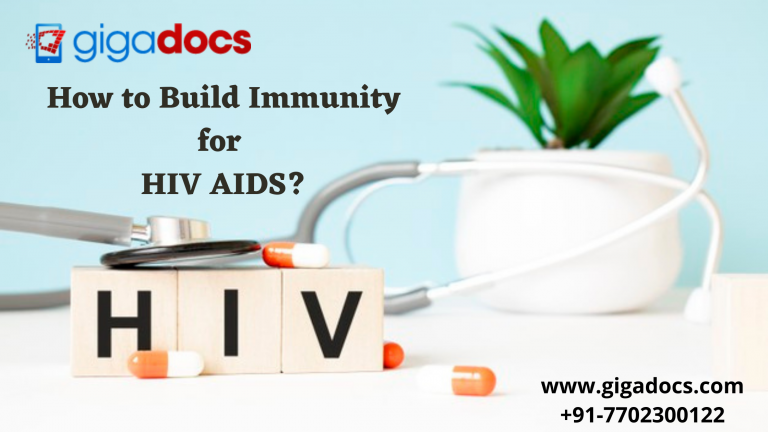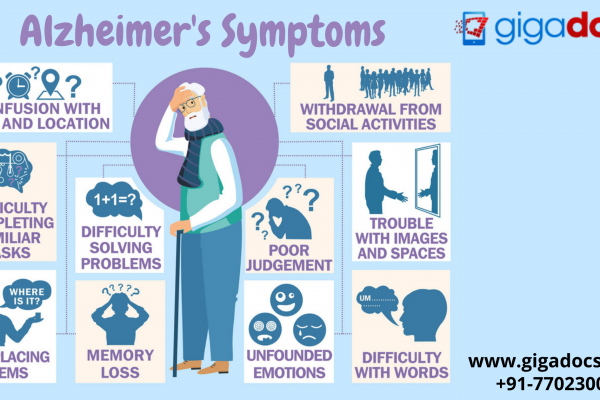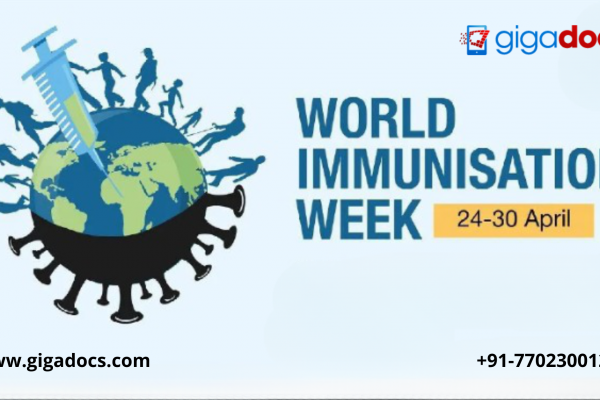HIV/AIDS impairs an infected person’s T cells who can spread the infection through blood transmission, sharing needles, and unprotected sex. India is home to the world’s third-largest HIV/AIDS infected with over 2 million confirmed cases including over 2.5 lac deaths recorded in 2020.
After the first infection, a person may suffer no symptoms or a brief period of flu-like symptoms such as fever, joint pains, body ache, and enlarged lymph nodes, which is usually followed by a long period of asymptomatic recovery. As the infection advances, the immune system becomes more vulnerable, as seen by a fall in CD4 cell count in the blood. That puts the patient at risk for developing illnesses like tuberculosis and Pneumocystis carinii pneumonia and cancers like Kaposi sarcoma, uncommon in persons with healthy immune systems. AIDS refers to a later stage onset of infectious symptoms diagnosed by a blood test.
AIDS Prevention and Care
An HIV vaccination is a possible preventative intervention for those who do not have HIV. Thus, it is a need of the hour to develop an AIDS vaccine that will improve people’s immunity to fight HIV/AIDS.
The quick research and rollout for COVID-19 vaccines have accelerated the interchange of knowledge, technologies that call for community participation models for HIV vaccine research. COVID has proved that a global sense of urgency to contain a pandemic generates research funding overnight, assisting pharmaceutical companies, academic institutions, and non-profits. That helps them overcome previously formidable collaboration challenges that cut vaccine development and testing timelines from decades to months. However, the success of the rapid Covid vaccine development is not replicated to steadfast the HIV vaccine efforts to restrict the spread of HIV-AIDS.
HIV Vaccine Awareness Day
In 1998, the first World AIDS Vaccine Day was observed to commemorate the first anniversary of President Bill Clinton’s speech in which he emphasized the necessity of recognizing World AIDS Vaccine Day and the hard work put behind to develop an effective vaccine. From then on, every year 18th. of May is designated as the HIV Vaccine Awareness Day (HIVAD). This day honours the efforts put by the volunteers, community members, health professionals, and scientists who have collaborated to develop a safe HIV vaccine. It’s also a day to raise awareness about the need to accelerate HIV vaccine research in communities. Every year on this day, communities across the world hold a variety of activities to raise awareness about vaccines and educate communities about how individuals may contribute to the international effort to combat the pandemic.
On this day, volunteers remind people that our collective efforts can prevent HIV and that each of us can play a crucial role in avoiding the spread and easing the burden. World AIDS Vaccine Day is usually commemorated through events held all around the world.However, due to the COVID-19 epidemic and lockdown, no events will be held this year.
“HIV Vaccine Research: Building on Lessons from COVID” is AIDS Vaccine Advocacy Coalition (AVAC)’s theme for HIV Vaccine Awareness Day 2021. This theme explains how the COVID experience might help accelerate vaccine research and delivery for HIV, tuberculosis, malaria, and other diseases.
AIDS Treatment and Vaccination
There is no cure for HIV, though antiretroviral therapy (ART) can help decrease the virus’s reproduction. This highlights the importance of prevention, including raising awareness, practising safe sex, preventing needle sharing, and testing at-risk persons early. Vaccines work by boosting the immune system to protect the body from infection. The development of a safe and effective vaccine will go a long way towards protecting people from contracting HIV.
Currently, there is no authorized HIV vaccine, but extensive research initiatives are ongoing. Even a marginally effective vaccine can help to control the pandemic by lowering transmission. However, the virus’s rapid genetic mutation, the inability of antibodies to kill the virus, and the risk of viral replication pose numerous challenges towards vaccine development.
HIV Testing and Diagnosis
HIV testing is available in several places, including standalone clinics, health centres, and public-private partnership enabled care centres. Mobile testing units that provide community-based testing offer an early diagnosis to first-time testers and those who do not frequently use clinical services. Community-based testing fights the stigma around HIV patients and the criminalization of populations at high risk who may not feel too comfortable to attend standalone clinics and health facilities.
Stigma and prejudice continue to be substantial impediments to the treatment and delivery of vital healthcare services for impacted communities and those at high risk of HIV transmission. There is also a need to strengthen the link between testing and treatment to ensure that those diagnosed can undergo specialized care and treatment.
Stress is quite common among those with AIDS, if you have also had a headache, irregular sleeping patterns or fatigue ensure you have the Gigadocs app ready. Gigadocs facilitates the booking of doctor’s appointments online and helps you consult with the best doctors available near you, at a time convenient to you from the secure privacy of your home.
Download Gigadocs App to avail the best online consultations-
- IOS App – apple.co/2W2iG4V
- Android App – bit.ly/33AQoRC
To know more and schedule a Virtual Consultation demo, Email, at info@gigadocs.com.




